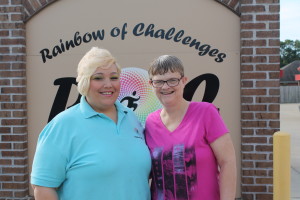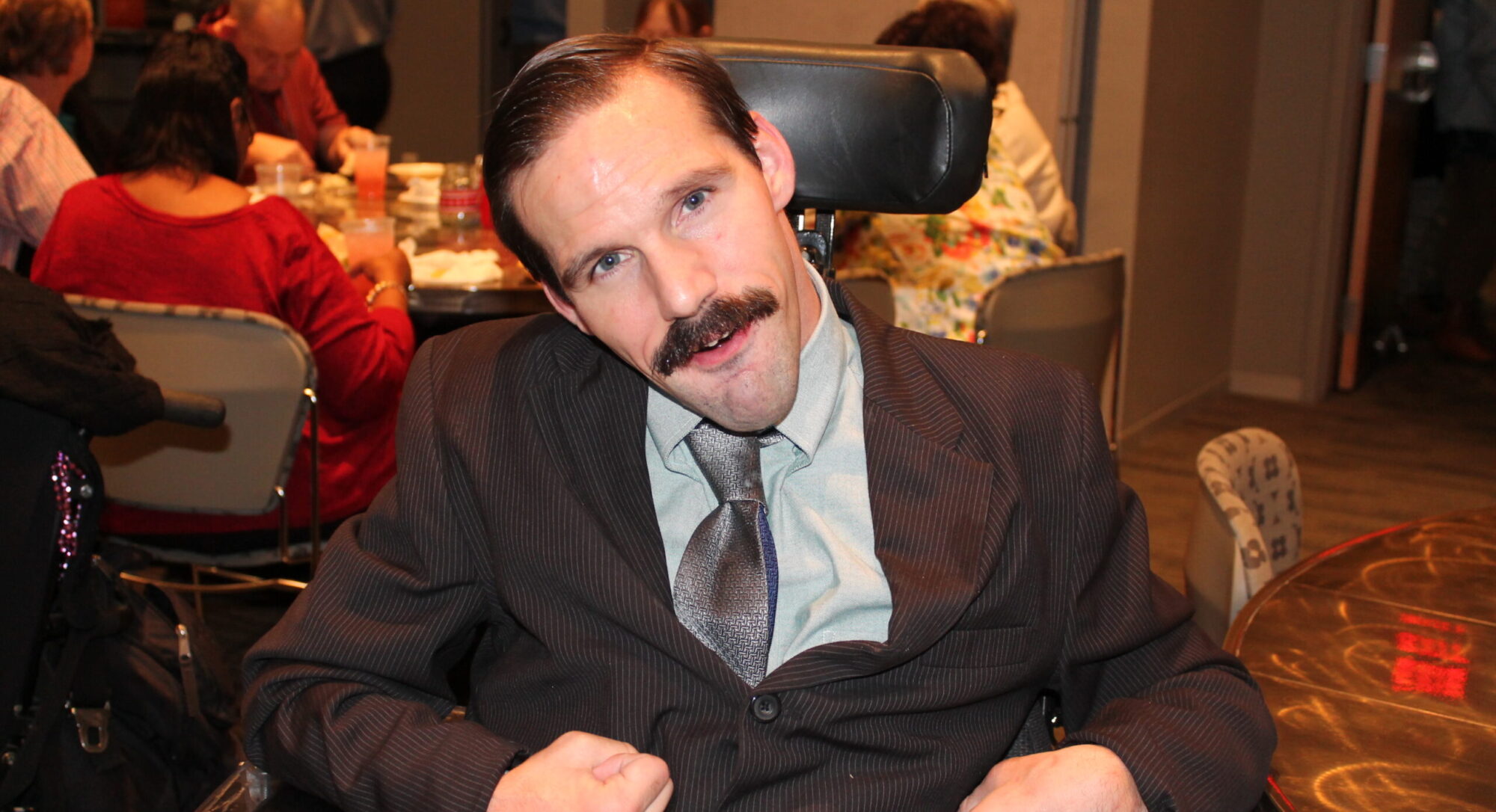They have compassion, dedication, and patience. They are a friend, mentor, and protector. Are all simple descriptions of the qualities of a Direct Support Professional (DSP). But each of those qualities originates in one place, their enormous hearts.
Carolyn Stuart serves as a DSP in the residential component of Rainbow of Challenges and she not only serves one individual, but reaches out to care for the eight ladies who reside in the North Town Square in Hope.
While the nation continues to shine the spotlight on DSPs and the extraordinary work they do this week, Stuart is yet another example of a DSP who quietly leads others.
Stuart got her start many years ago when ROC was known as School of Hope. She then worked privately for approximately 20 years, but returned to ROC two years ago and is a steadfast example of a DSP.
“Seeing what progress we can make and trying to meet their needs is what I love,” she was quick to remark. “I want to see them get as far as they can go.”
Many times, the general public is unaware there is a silent partner who accompanies the individuals of ROC, ensuring they are safe and functioning as independently as their abilities allow. “The public doesn’t realize that many of the individuals don’t have family that understands how to put forth what it takes to get that person into the community,” Stuart says. “It’s not that their families don’t care, it’s simply they don’t know how or have the resources to do so. I will go as far as I can to get things done.”
Working in a residential setting is quite different than working one-on-one. As anyone can attest, a home setting can be trying, but the rewards and bonds that are made are priceless. “Each person is capable of doing more than they want to do because they are just like anyone else in a family,” she notes. “I have a lot of empathy. It takes going out of your way, doing a little bit more than you have to, in order to get the job done and not be too rigid.
“There is a lot of learning what it takes to motivate a person to get them to do what is expected,” Stuart says. “I try to do it in a family way, because many times that’s the only family they have.”
Through all the struggles, it’s a rewarding career. At the end of the day, Stuart knows why she is a DSP. “When I know that I’ve done something that day to help someone feel better, to help them accomplish something, that’s all I need,” she notes.
Stuart has experienced a difficult year personally, but her ROC family has uplifted her and been motivational in navigating her troubling waters. “My professional life has saved my life,” she says wiping a tear. “I think if I didn’t have it I would have fallen completely apart. I lost my child and had difficulty at home. When I walk in that door (of North Town) I’m completely at home. “
On the other end of the DSP spectrum, Nathalie Smith serves as one-on-one with an ROC individual. She has an easy smile and is quiet in tone, qualities that serve her well.
She brings a certain drive and truly understands being a DSP is not like an ordinary job. “You never know what you are facing, what obstacles each day may bring” she quickly states. “You have some good days and you have some bad days as well. So, you just have to be prepared for anything.”
Communication with her charge goes a long way. It helps clear the path to provide solutions and also the occasional insights into humanity. “We talk a lot,” says Smith. “She asked me what it meant to care about someone”. I said, “when you care about someone, you care about their well-being, you love them, you don’t want them to hurt, you are there for them,” things like that.”
Living independently is tantamount to many of the ROC individuals but having the support of a DSP is essential. “She gets to do things on her own now,” says Smith. “Just her being independent is so important. She shows me she’s wanted to do these things and that she can be independent. She is so happy when she does something she doesn’t have to ask help for. It’s such a milestone for her and I’ve seen her change so much in the past months.
Smith learns from the individual she cares for just as her individual learns from her. “I think she’s not scared to try anything and it’s something we can all learn from,” she states.
“It’s challenging work,” Smith concludes. You have to want to do this. This isn’t something you do for a paycheck. I love what I do. You have to want to see the individual better themselves and not stay in the same position. You can give that person a lift. You want them to go out there and learn and experience different things.”

